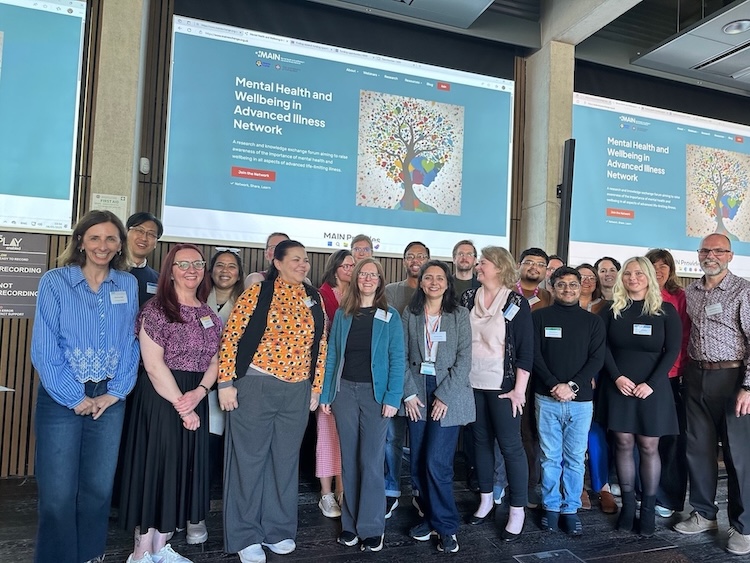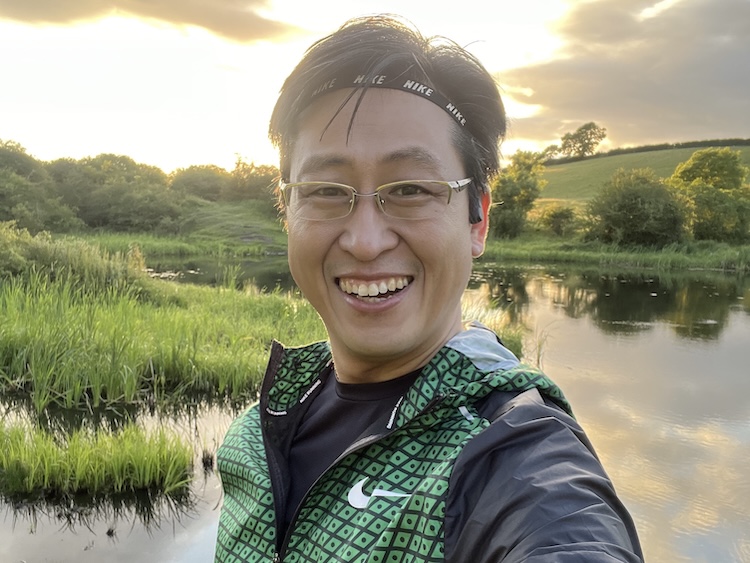MAIN Blog
MAIN Grant Writing and Networking Workshop - Grant writing and creativity
In this post, Seunghoon Oh, a bursary awardee, reflects on his experience attending the event, learning and steps forward. The MAIN Grant Writing and Networking Workshop was held the 8th of May at the Edinburgh Future Institute in Edinburgh.
_ _ _ _ _ _ _ _ _ _ _ _ _ _ _ _ _ _ _ _ _ _ _ _ _ _ _ _ _ _ _ _ _ _ _ _ _ _ _ _

Participating in the MAIN grant writing and networking workshop was a genuinely inspiring experience. I am grateful for the opportunity and the support through the bursary, which allowed me to engage meaningfully in a space filled with critical conversations and shared purpose. Through the event, I connected with six other researchers, and together, we began shaping a collaborative proposal that we aim to submit in September. The moment the workshop concluded, we found ourselves urgently clarifying our research questions, committing to next steps, and embracing the momentum the day had generated.
The grant writing training equipped me with the foundational tools to craft competitive and meaningful proposals rooted in my current research outputs, which include eight journal articles and two forthcoming book chapters. These will appear in:
- The Radical, Ethical Middle/Core of Social Work (Routledge, Sept 2025), where I examine structural-ecosocial conditions of health through palliative care in South Korea; and
- Advance Digital Technologies and the Disruption of the Social (Routledge, Jan 2026), in which I explore the role of virtual reality in bereavement care.
Enhancing my ability to align research outputs with funder priorities (such as NIHR and Marie Curie) positions me to lead future interdisciplinary projects addressing health inequities in palliative and bereavement care. I intend to pursue funding bids that integrate critical ethnography and support trauma-informed, anti-oppressive practices.
Beyond writing skills, the workshop created a platform for fostering connections with clinicians and UK-based researchers. These networks are crucial for translating theory into action. With my background in health inequalities, toxic exposures, and the social determinants of health, I hope to contribute to co-producing practical resources in trauma-informed palliative care. These collaborations, I believe, will extend the applied impact of my research and open pathways to future joint grants.
Yet, attending such events reminds me that not every attempt leads to success. Applying for funding is never about certainty — it is about the willingness to try, even when outcomes are unclear.
As Solnit (2016, p.109) observes, the global justice movement and similar phenomena signal a profound shift in “imagination and desire” — a movement that, while still “inchoate,” is fuelled by creativity and open-ended possibility. This perspective captures the spirit of taking action without guarantees — of engaging in struggles not because success is assured, but because the act itself carries meaning. It reminds me that we don’t only fight battles we know we can win; rather, it is often urgency — even desperation — that ignites creativity and compels us to act. I do not expect the path ahead to be smooth, but I trust the process. In facing uncertainty, I also expect to grow — and to push the boundaries of what I imagine to be possible.
Korea is a country that has been forced to fight too many battles — not by choice, but by necessity. It is a nation that has endured countless invasions, often fighting not because victory was assured, but because not fighting would have meant complete collapse. These were not strategic battles for advantage, but existential struggles for survival. I sometimes wonder if creativity emerges precisely from such moments — when nothing seems possible, yet we still ask, “Is there anything we can do?” That question itself, I believe, is the spark of imaginative resistance — the very essence of hope in action.
Since the workshop, I’ve returned to one persistent question: what does creativity actually mean? Perhaps it is simply the act of moving beyond one’s first idea — discovering something richer, more honest, or more generous than before. In this sense, creativity is not flash or flair, but discipline and ethical commitment.
My academic journey — from my first doctorate in moral philosophy, exploring virtue ethics and medical ethics, to my recently completed second PhD in sociology and social policy — has continually returned me to the concept of compassion. Not as sentimentality, but as an ethical demand, especially within palliative care. Now, at the threshold of a new phase in my career, I am reflecting on what I call virtue-driven practice: a form of professionalism that recognises constraints, yet strives to transcend them through imaginative, ethical, and critical action. It is a form of doing that exceeds mere satisficing — it aspires.
This workshop gave me much more than writing skills — it gave me new questions, new collaborators, and a renewed sense of purpose. And that, I think, is worth writing for. Ultimately, the most tangible outcome of the workshop was not just renewed inspiration but a completed grant application: Strengthening End-Of-Life Communications: A Meta-Synthesis and Service Blueprint to Direct Practice Improvement, collaboratively developed and submitted on 21 July 2025 with Dr Kathryn Radley (University of Glasgow), Dr Nils Rickardsson (NHS Forth Valley), and myself, amongst other. While the outcome remains uncertain, I believe this collaborative act — born from urgency, shared purpose, and creative resolve — is precisely what hope looks like in motion. It was, above all, a meaningful experience of co-creation and determination.
References
Oh, S. (forthcoming, 2025). ‘Compassionate Radical Ethical Social Work: Toward Structural-Ecosocial Conditions of Health (SECoH) and Toxic Harm through Public Health Palliative Care in South Korea’, in Schmid, J. and Morgenshtern, M. (eds.) The Radical, Ethical Middle/Core of Social Work. London: Routledge. (Expected September 2025).
Oh, S. (forthcoming, 2026). ‘Virtual Encounters: Exploring the Role of Social Work in Virtual Reality Enhanced Bereavement Care’, in Noble, C. and Ottmann, G. (eds.) Advance Digital Technologies and the Disruption of the Social. London: Routledge. (Expected January 2026).
Solnit, R. (2016) Hope in the Dark: Untold Histories, Wild Possibilities. 3rd edn. Chicago: Haymarket Books.
Blog's Author
Seunghoon Oh is a researcher at Durham University working on decision-making processes for children and young people with life-limiting conditions. With academic backgrounds in theology, social work, philosophy of science and bioethics, he has completed PhDs and presented his work at various international conferences. His recent research focuses on palliative care, anti-oppressive practice and bereavement, particularly in paediatric and cross-cultural contexts (ORCID: https://orcid.org/0000-0002-47... )

Published: Jun 16, 2025



